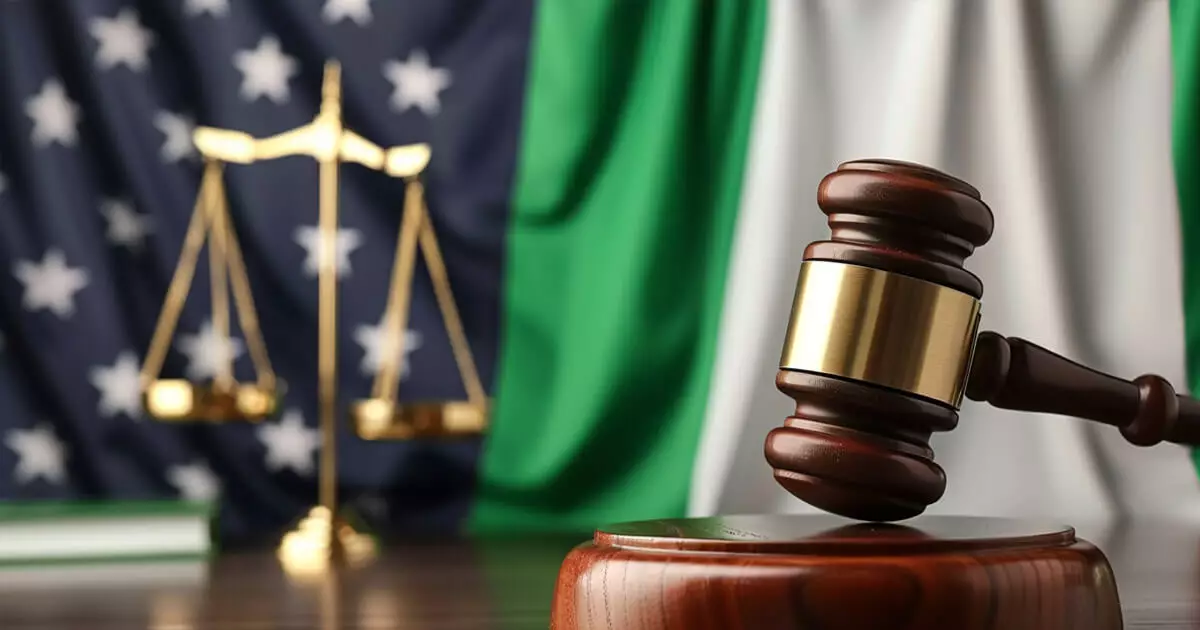In an era where the digital landscape is increasingly influenced by cryptocurrencies, the United States and Nigeria have initiated a crucial cooperation through the establishment of the Bilateral Liaison Group. This partnership aims to tackle the challenges posed by cryptocurrency-related crimes and to combat the illegal financing activities that have emerged alongside the rise of digital currencies. Announced on October 23, this collaboration emphasizes an intensified commitment from both nations to enhance their capabilities in investigating and prosecuting cybercrimes that exploit cryptocurrencies.
Cryptocurrency has gained significant traction globally, particularly in emerging markets like Nigeria. Data from leading blockchain analytics firm Chainalysis indicates that Nigeria ranks as the second-largest adopter of cryptocurrency worldwide, further solidifying its prominence in the burgeoning landscape of digital finance within Sub-Saharan Africa. Conversely, the United States has maintained a strong position in North America, marked by vigorous institutional investments in Bitcoin and Ethereum exchange-traded funds (ETFs). This dynamic highlights not only a shared interest in cryptocurrency but also the urgent need to address the risks and vulnerabilities that accompany its rapid adoption.
The Global Challenge of Illicit Financial Activities
The decentralized nature of cryptocurrencies, while offering advantages such as low-cost and fast cross-border transactions, also poses significant challenges for regulators and law enforcement agencies. As illicit actors increasingly turn to digital currencies to facilitate their illegal activities, the need for effective regulatory frameworks becomes apparent. A recent report by TRM Labs noted a dramatic decrease in illicit funds within the cryptocurrency ecosystem, shrinking by 99% year-on-year to approximately $34 billion in 2023. This statistic underscores the evolving landscape of cybercrime, making it necessary for nations to collaborate in their approaches to regulation and enforcement.
Strategic Framework and Collaborative Goals
The Bilateral Liaison Group not only establishes a platform for sharing intelligence but also focuses on developing coordinated strategies to dismantle illicit financial networks. Critical aspects of the partnership include bolstering investigative capacities, enhancing the exchange of intelligence, and fostering cooperative relationships between regulatory bodies and private firms. By establishing robust regulatory frameworks and employing advanced technologies, both countries aspire to track and analyze crypto transactions that may be linked to criminal enterprises.
Capacity Building and Public Awareness
In addition to regulatory measures, education plays a vital role in the success of this initiative. The collaboration will extend to training programs for Nigerian law enforcement officials and community outreach aimed at increasing public awareness of potential crypto-related risks. By equipping authorities with the necessary skills and knowledge, the US-Nigeria partnership seeks to ensure that both nations are prepared to address the evolving landscape of cryptocurrency and its associated challenges effectively.
The US-Nigeria Bilateral Liaison Group represents an important step in international cybersecurity cooperation. Should this initiative prove successful, it may pave the way for the United States to form similar partnerships with other countries, creating a more robust global network dedicated to countering the threats posed by cryptocurrency-related crimes. As digital currencies continue to evolve, proactive collaboration among nations will be essential in safeguarding financial systems and promoting integrity in the rapidly changing world of digital finance.

